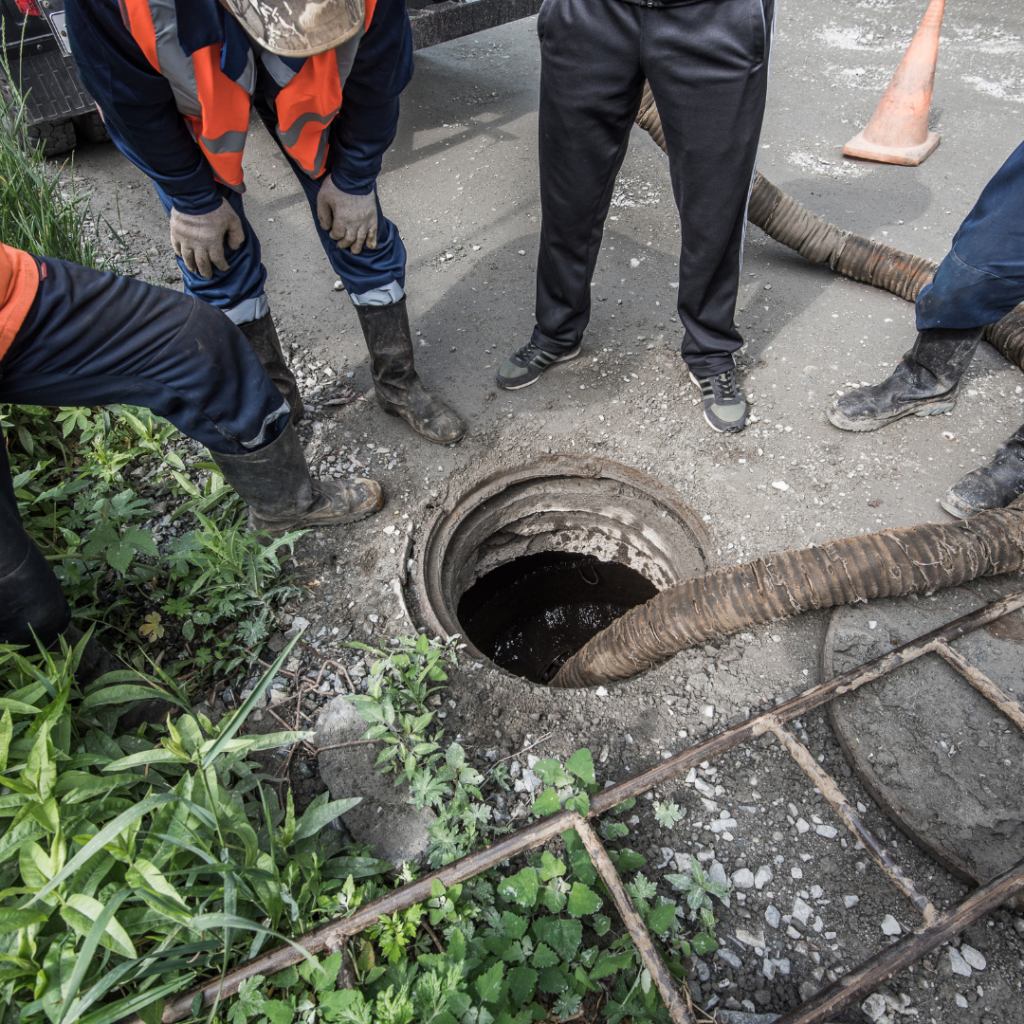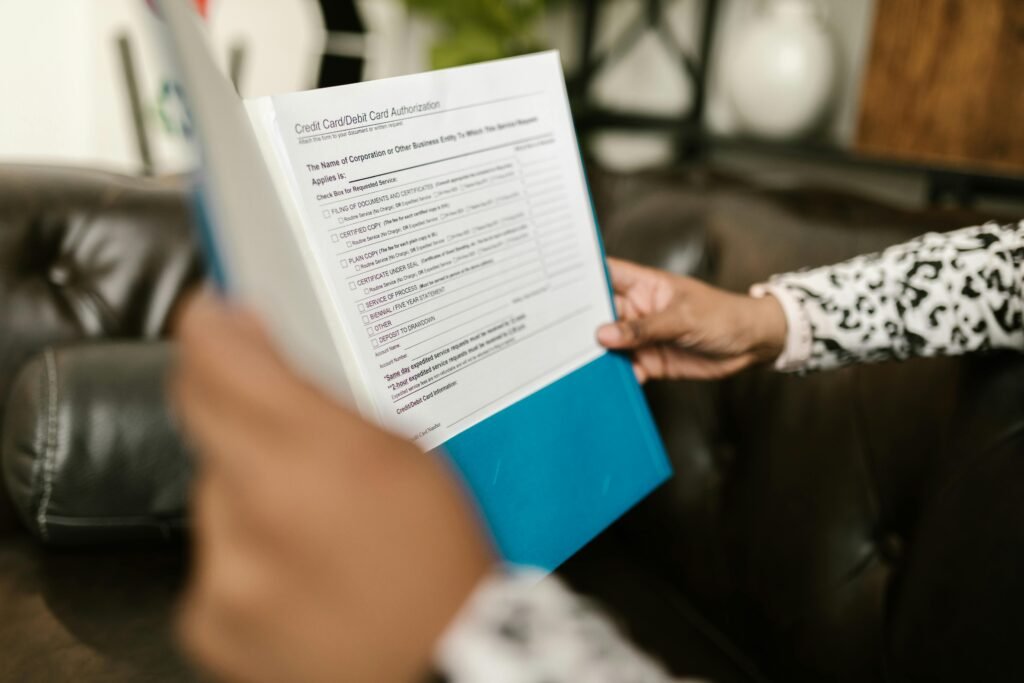Mecklenburg County Woman Charged With Pet Insurance Fraud

September 29, 2025 | JacobiJournal.com — A Mecklenburg County resident has been charged with pet insurance fraud after state investigators alleged she falsified veterinary invoices to receive improper payouts from her pet insurance policy. The North Carolina Department of Insurance (NC DOI) announced that the woman altered multiple invoices to claim reimbursements for services that were never rendered, a scheme described as pet insurance fraud. Officials said the investigation began when the insurance company noticed inconsistencies between the submitted paperwork and the veterinary clinic’s records. Everyday Fraud Carries Real Consequences While the alleged fraud involves a relatively small sum, experts warn that “everyday fraud” like this drives up insurance premiums for honest policyholders. NC DOI officials emphasized that pet insurance fraud—no matter the dollar amount—remains a felony offense in North Carolina. “Even small, false claims erode public trust and increase costs for everyone,” said an NC DOI spokesperson. They noted that cases of pet insurance fraud can start with minor invoice alterations but have lasting financial impacts on both insurers and consumers. How the Investigation Unfolded Investigators coordinated with the pet insurance company and local veterinarians to verify the authenticity of invoices submitted for reimbursement. Once discrepancies were confirmed, the suspect was formally charged and now awaits a court hearing in Mecklenburg County. Authorities noted that the cooperation between insurers and veterinary clinics was crucial in uncovering the alleged scheme, highlighting how industry oversight and consumer vigilance can play a major role in detecting pet insurance fraud. Consumer Alert: Protect Yourself From Fraud Pet owners are encouraged to keep accurate records, request itemized receipts from veterinarians, and immediately correct any billing errors to avoid misunderstandings. The NC DOI provides resources to help consumers report suspicious activity. Visit the official NC DOI Fraud Division page for guidance. FAQs: North Carolina Pet Insurance Fraud What is considered pet insurance fraud? Submitting falsified veterinary records, inflating treatment costs, or claiming reimbursement for procedures not performed all qualify as insurance fraud. What penalties can someone face for insurance fraud in North Carolina? Depending on the amount and intent, penalties can include felony charges, restitution, fines, and potential jail time. How do insurers detect fraudulent claims? Insurers use invoice verification with clinics, claim audits, and data analytics to flag suspicious patterns. How can pet owners avoid false accusations of fraud? Maintain thorough documentation, confirm invoices with your veterinarian, and quickly address any discrepancies with your insurance provider. Stay informed. Subscribe to JacobiJournal.com for timely consumer protection and insurance news. 🔎 Read More from JacobiJournal.com:
Second Round of Guilty Pleas in California $16M Hospice Billing Scheme

July 11, 2025 | JacobiJournal.com – $16M hospice fraud led to guilty pleas from two California residents in a widening Medicare scam, federal prosecutors announced. The scheme involved fraudulent billing for hospice services and laundering millions through shell companies, reflecting the DOJ’s continued focus on prosecuting healthcare crime at all level How the Fraud Worked According to court filings, the defendants conspired to submit false claims to Medicare for hospice services that were either medically unnecessary or never delivered. Patient information was manipulated, and documentation was falsified to create the appearance of legitimate end-of-life care. In reality, many of the patients did not qualify for hospice, and some were unaware they had been enrolled at all. This conduct was a key element of the $16M hospice fraud scheme now under federal prosecution. By exploiting gaps in Medicare’s hospice eligibility verification process, the conspirators were able to generate millions in unlawful reimbursements. The $16M hospice fraud case also highlights how vulnerable patient records can be misused, particularly when oversight mechanisms fail. Authorities have emphasized that such manipulation not only defrauds the system but may impact patient care by interfering with their medical histories and future eligibility for benefits. Larger Investigation Unfolds These pleas are part of a wider investigation involving multiple co-defendants across California and other states. The Department of Justice confirmed that the defendants also took part in laundering the proceeds through shell companies and fraudulent financial transactions. Federal prosecutors emphasized that each guilty plea strengthens their case against the broader network behind the scam. Authorities are continuing efforts to recover misused funds and pursue remaining individuals tied to the fraud. The $16M hospice fraud scheme has drawn national attention due to its scale and coordination. Investigators are now analyzing financial records, communications, and business filings to trace the full extent of the operation. Law enforcement sources suggest the fraudulent activity may have extended over several years and involved actors in the healthcare, finance, and legal sectors. With more defendants likely to be charged, the DOJ has framed the case as a critical example of its broader initiative to root out large-scale healthcare fraud that endangers patients and drains federal resources. A Signal to the Industry The case underscores how financial crime within healthcare continues to evolve—and how regulators are sharpening their focus on compliance enforcement. With sentencing pending, both defendants face potential prison time and restitution orders. Federal agencies say more charges are possible as the investigation unfolds. The $16M hospice fraud case serves as a stark reminder to providers and organizations operating in the healthcare sector that federal oversight is intensifying. As digital records, billing platforms, and reimbursement systems become more sophisticated, so do attempts to exploit them. This prosecution demonstrates that law enforcement agencies are prepared to dismantle entire networks, not just penalize individuals, when fraud is detected. For professionals working in compliance, billing, and provider administration, the case highlights the importance of strong internal auditing, ethical oversight, and transparent documentation. As the healthcare industry continues to shift toward value-based and end-of-life care models, the government is making clear that any abuse of these systems will be met with aggressive legal action. To read more information about this case, visit Justice.gov. FAQs: About the $16M Hospice Fraud Guilty Pleas What were the defendants accused of in the $16 million hospice fraud scheme? The defendants admitted to submitting false claims to Medicare for hospice services that were either medically unnecessary or never provided. They also engaged in money laundering to conceal the proceeds of the fraud. How did the fraud scheme exploit Medicare and patients? The scheme used falsified documentation and enrolled patients—many of whom did not qualify for hospice—without proper medical justification. Some patients were unaware they were listed as receiving end-of-life care, which could affect their future access to legitimate medical services. What are the potential penalties for those who plead guilty? Each defendant faces a potential federal prison sentence, restitution orders, and fines. Why is the $16M hospice fraud case significant to Medicare oversight? This case exposes vulnerabilities in Medicare’s hospice billing system and underscores the importance of regulatory oversight. The Department of Justice is using this $16M hospice fraud as an example to signal stronger enforcement and deter future abuse of federal healthcare programs. Get the latest updates on healthcare fraud — subscribe to JacobiJournal.com for in-depth reporting delivered directly to your inbox. 🔎 Read More from JacobiJournal.com:
Washington Man on Workers’ Comp for 3 Years Caught Lifting Heavy Table

January 29, 2025 | JacobiJournal.com — Washington Man Caught Lifting: A Pierce County man must repay more than $60,000 to Washington’s workers’ compensation fund after investigators discovered he had been working while collecting benefits. The case is a clear example of workers’ compensation fraud, as video evidence showed him lifting a 48-pound table—far exceeding his medical restrictions. Workers’ compensation fraud cases like this highlight how false claims undermine the system designed to protect legitimately injured workers. When individuals misrepresent their medical conditions to continue receiving benefits, it not only drains state resources but also increases insurance costs for employers and makes it harder for truly injured employees to access the support they need. Claimed Injury, But Kept Working Juan P. Delgado, a roofer in Tacoma, suffered back, ankle, and knee injuries in March 2019 after falling over six feet from a ladder. His doctor determined he could not work, and Delgado repeatedly submitted official forms affirming his inability to hold a job. However, in early 2021, a private investigator—hired by his former employer—reported that Delgado had been working. The Washington State Department of Labor & Industries (L&I) launched its own investigation and found that just weeks after his injury, he resumed working as a custodian, roofer, and house-cleaner. Video Evidence Uncovers the Truth In October 2022, an undercover L&I investigator approached Delgado near a Tacoma house and asked if he could have a discarded table. Delgado agreed and carried it alone for more than 50 feet—unaware that another investigator was filming the scene. Later, investigators weighed the table and found it was 48.6 pounds, nearly double the 25-pound limit imposed by his doctor. After reviewing the footage, Delgado’s physician concluded he had misrepresented his physical abilities and could have resumed roofing work much earlier. Guilty Plea Leads to Restitution and Sentencing Delgado, 51, pleaded guilty to second-degree malicious mischief, a felony, for unlawfully collecting workers’ compensation payments from April 2019 to January 2022. A Pierce County judge ordered him to pay $60,116 in restitution and serve 20 days on electronic home monitoring. The Washington State Attorney General’s Office prosecuted the case. In addition to financial penalties, the guilty plea underscores how seriously Washington courts treat workers’ compensation fraud. Prosecutors emphasized that even short-term schemes can lead to felony charges, restitution orders, and restrictions on personal freedom. While the electronic home monitoring sentence is less severe than jail time, it still reflects the court’s intent to hold offenders accountable while allowing them to maintain limited community access under strict supervision. Cases like Delgado’s serve as a warning that fraudulent claims are aggressively pursued and carry long-lasting legal and financial consequences. Restitution in workers’ compensation fraud cases is not optional; it is a court-ordered obligation. If defendants like Delgado fail to make scheduled payments, the state can enforce restitution through wage garnishment, tax refund interception, or even placing liens on property. These enforcement measures ensure that stolen funds are repaid to the workers’ compensation system, protecting the integrity of state resources. For many offenders, the financial impact of restitution lasts years beyond the initial conviction, serving as both a penalty and a deterrent against future fraud. Read the full report from Washington State L&I. FAQs: Workers’ Compensation Fraud What is workers’ compensation fraud? Workers’ compensation fraud occurs when someone lies about their injury or ability to work in order to keep receiving benefits they are not entitled to. How was the Washington man caught committing workers’ compensation fraud? Investigators filmed him lifting a 48-pound table, well above his doctor’s restriction, proving he misrepresented his condition while collecting benefits. What are the penalties for workers’ compensation fraud? Penalties can include restitution, probation, electronic monitoring, or even prison time, depending on the scale and intent of the fraud. Why is workers’ compensation fraud a serious issue? Fraudulent claims drain state funds, raise insurance premiums for employers, and undermine the system designed to protect legitimately injured workers. How long do I have to file a workers’ comp claim in Washington state? Workers in Washington generally have three years from the date of injury to file a claim with L&I. However, it’s best to report injuries as soon as possible to avoid delays in medical treatment and wage benefits. Certain exceptions may apply for latent injuries or occupational illnesses. Is Washington L&I the same as Workers Comp? Yes. In Washington state, the Department of Labor & Industries (L&I) administers the state’s workers’ compensation program. While “workers’ comp” is the benefit system itself, L&I is the government agency that manages claims, enforces regulations, and investigates potential fraud. Don’t miss real cases that shape workplace law and fraud enforcement. Subscribe to JacobiJournal.com today and stay ahead of the headlines. 🔎 Read More from JacobiJournal.com:
Former Sewerage & Water Board Employee Arrested for Workers’ Compensation Fraud

January 2, 2025 | JacobiJournal.com — Compensation fraud is at the center of a recent case in Louisiana. The Louisiana Bureau of Investigation (LBI), under Attorney General Liz Murrill, has arrested Ederik Trask, a former employee of the Sewerage & Water Board of New Orleans. Trask, who resides in Metairie, is accused of workers’ compensation fraud. Specifically, he allegedly misrepresented his employment status while receiving benefits. Cases of compensation fraud like this highlight how even trusted employees can exploit benefit systems designed to protect injured workers. When individuals misrepresent their employment status or income, it not only undermines public trust but also drives up costs for both taxpayers and honest policyholders who rely on fair claims processes. Complaint and Investigation On August 27, 2024, the Sewerage & Water Board formally complained to the LBI, alleging fraudulent activity by Trask. Investigators soon discovered that Trask had been working for a rideshare company while collecting workers’ compensation benefits. This dual employment, however, violates Louisiana law, which mandates truthful reporting for benefit claims. The discovery underscores how compensation fraud often involves hidden employment or unreported income, making it difficult for regulators to detect without thorough investigations. Such cases not only jeopardize the financial stability of the benefits system but also place an unfair burden on honest workers and employers who rely on these programs for legitimate claims. Legal Action Taken by Sewerage & Water Board After gathering sufficient evidence, LBI Special Agents quickly obtained an arrest warrant for Trask. He is now charged under Louisiana Revised Statute 23:1208 C.1, which forbids false statements about claims exceeding $10,000. Subsequently, on December 20, 2024, Trask surrendered at the Orleans Parish Jail. There, authorities arrested and booked him without any issues. This legal action highlights Louisiana’s strict stance on compensation fraud, particularly cases involving significant financial misrepresentation. By pursuing charges under state law, investigators aim to uphold the integrity of the benefits system while deterring other employees from attempting similar schemes that exploit taxpayer-funded resources. Ongoing Investigation The investigation is ongoing, as authorities continue to examine the details surrounding the alleged fraud. Meanwhile, the Louisiana Attorney General’s Office emphasizes its commitment to holding individuals accountable for abusing public resources. Consequently, they are determined to maintain the integrity of the workers’ compensation system. Authorities note that tackling compensation fraud remains a critical priority because such schemes drain valuable resources and weaken protections for legitimately injured employees. By pursuing this case, the Louisiana Attorney General’s Office aims to send a clear message that fraudulent claims will be met with serious consequences, reinforcing the state’s broader strategy to deter abuse within the workers’ compensation framework. For additional insights into fraud prevention and workers’ comp cases, visit the Louisiana Workforce Commission, which provides official resources on compliance, claims, and enforcement. FAQs: Workers’ Compensation Fraud What is workers’ compensation fraud in Louisiana? Workers’ compensation fraud occurs when someone provides false information to obtain benefits, such as working another job while collecting payments. What happened in the Sewerage & Water Board workers’ compensation fraud case? Investigators found that former employee Ederik Trask allegedly worked for a rideshare company while receiving workers’ comp benefits. What penalties apply for workers’ compensation fraud in Louisiana? Those convicted can face fines, restitution, criminal charges, and loss of benefits under Louisiana Revised Statute 23:1208. How does Louisiana investigate workers’ compensation fraud? The Louisiana Bureau of Investigation works with state agencies to review claims, track financial discrepancies, and prosecute fraudulent activity. What are the consequences of workers’ compensation fraud in Louisiana? Consequences can include criminal charges, fines, restitution, loss of benefits, and possible jail time. Convictions also damage the individual’s credibility and can affect future employment opportunities. Is workers’ compensation fraud a federal crime? Workers’ compensation fraud is generally prosecuted under state law. However, if the fraud involves federal programs, interstate activity, or mail and wire fraud, federal charges could apply alongside state penalties. What are the red flags for workers’ compensation fraud? Red flags include collecting benefits while working another job, inconsistent medical records, sudden lifestyle changes, exaggerated injuries, or suspicious claims that don’t match documented work duties. Stay informed on fraud investigations, legal actions, and public accountability cases. Subscribe to JacobiJournal.com for updates and expert reporting on workers’ compensation fraud and related financial crimes. 🔎 Read More from JacobiJournal.com:
Insurance Fraud Settlement in the Midwest: Major Development

December 24, 2024 | JacobiJournal.com — Insurance Fraud Settlement: A significant fraud settlement has been reached involving an insurer in the Midwest. The case, reported by Insurance Journal (Read the full article), highlights ongoing challenges in combating fraudulent activities within the industry. Case Highlights: This case reminds insurers to remain vigilant and implement robust fraud detection mechanisms. It also illustrates the importance of collaboration between regulatory bodies and the private sector. Key Takeaways for Tax Professionals Whether it’s individual or business-related taxes, 2024 is bringing significant shifts. Baker Tilly’s reports outline changes in deductions, tax brackets, and compliance rules. Here’s a snapshot: Discover actionable insights tailored for your needs by visiting their tax update resources: Learn More. Modernizing Fraud Investigations Fraud investigations often involve emotionally vulnerable individuals. Recognizing this, the use of trauma-informed principles is gaining traction, helping to build trust and ensure fair practices. Experts suggest: By emphasizing care, accuracy improves while communities feel better served. Learn more about implementing these approaches by exploring the original article on Insurance Fraud.org. FAQs: Insurance Fraud Settlement What is the insurance fraud settlement in the Midwest about? The insurance fraud settlement in the Midwest involved allegations of false claims that led to millions in damages and stricter compliance oversight. How does the insurance fraud settlement impact insurers? The insurance fraud settlement underscores the need for insurers to strengthen fraud detection systems and collaborate with regulators to reduce risks. What financial lessons come from the insurance fraud settlement? The insurance fraud settlement demonstrates how fraudulent claims can result in severe financial losses, emphasizing proactive fraud prevention strategies. Why is collaboration important in the insurance fraud settlement? The insurance fraud settlement shows how insurers, regulators, and legal experts working together can create stronger fraud prevention frameworks. What is the largest fraud settlement in history? While the Midwest settlement highlighted in this article involved millions in damages, historically, the largest insurance and financial fraud settlements have reached into the billions, often involving multinational corporations or systemic fraudulent schemes. What is the current trend in insurance fraud? Insurance fraud continues to rise in complexity, with schemes ranging from false claims and staged accidents to sophisticated digital scams. Insurers are increasingly adopting technology-driven detection systems and collaborative strategies with regulators. Is insurance fraud a major crime? Yes, insurance fraud is considered a serious crime because it can lead to substantial financial losses, higher premiums for consumers, and potential criminal charges for those involved. Regulatory authorities treat repeated or large-scale fraud particularly harshly. What is the maximum sentence for insurance fraud? Penalties vary by state and the scale of the fraud. Large-scale or multi-year fraudulent schemes can result in lengthy prison terms, heavy fines, and restitution orders, alongside professional sanctions for those in the insurance industry. Stay informed on insurance fraud cases, compliance updates, and financial crime developments — subscribe to JacobiJournal.com for exclusive insights. 🔎 Read More from JacobiJournal.com:
Insurance Fraud Investigations: Unraveling the Truth Behind Fraudulent Claims

Insurance Fraud Investigations: Insurance fraud is a major issue that can affect any company. It takes many forms, from healthcare fraud and disability fraud to fake death claims. At CRI™, we specialize in handling a wide spectrum of insurance fraud cases. Our experts are highly skilled in identifying red flags and uncovering fraudulent activities. Through thorough Insurance Fraud Investigations, CRI™ not only identifies individual fraudulent claims but also uncovers patterns and trends that could indicate larger schemes. By combining detailed document analysis, interviews, and on-site observations, our team provides companies with actionable insights to prevent future fraud. These investigations help organizations safeguard their assets, maintain compliance with regulations, and protect policyholders, ensuring that fraudulent activities are addressed quickly and effectively. Methods for Identifying Fraud Our team utilizes a variety of methods to detect and investigate insurance fraud. We begin by thoroughly reviewing claims, medical and hospital records, and other relevant documents. We also conduct interviews and examine statements to gather as much information as possible. In addition, our agents perform on-site inspections to assess the situation and uncover hidden details that may indicate fraud. These approaches allow us to spot warning signs that others might miss. In addition to these standard procedures, our insurance fraud investigations leverage advanced data analysis and cross-referencing techniques to identify inconsistencies across multiple claims. By examining trends, patterns, and anomalies, our team can detect sophisticated or coordinated fraudulent schemes that might otherwise go unnoticed. This comprehensive approach ensures that every case is thoroughly evaluated, providing insurers with the evidence and insights needed to take timely and effective action. Partnering with Insurance Personnel To achieve timely and discreet results, we collaborate closely with insurance companies or fraud investigators. Our private investigation services are designed to work seamlessly with your team, ensuring that we uncover the truth without compromising confidentiality. By working together, we can address fraud swiftly and protect the interests of your organization. Collaborating in ongoing insurance fraud investigations allows our team to combine expertise with the knowledge of insurance personnel, improving both efficiency and accuracy. By sharing insights, reviewing emerging patterns, and coordinating investigative steps, we can uncover complex fraudulent activities that might be missed when working independently. This partnership ensures that investigations are thorough, discreet, and result in actionable findings that protect the company’s assets and maintain compliance with industry standards. Specialized Training for Every Case Each case we handle benefits from the specialized training our agents receive. Our team brings expert knowledge and a commitment to thoroughness, applying the right methods and techniques to every investigation. Whether it’s a complex healthcare fraud case or a suspicious disability claim, CRI™ agents know how to find the facts and present them objectively. Ongoing insurance fraud investigations are strengthened by this specialized training, allowing our agents to adapt to new fraud schemes and emerging trends. By applying advanced techniques and leveraging practical experience, our team can identify subtle red flags and patterns that others might overlook. This expertise ensures that every investigation is conducted thoroughly and objectively, providing clients with reliable findings and actionable insights to prevent future fraudulent activity. According to a report from CRI Group FAQs: Insurance Fraud Investigations What are common types of insurance fraud? Insurance fraud encompasses various schemes, including healthcare fraud, disability fraud, and fake death claims. Identifying these frauds requires vigilance and thorough investigation. How does CRI Group™ conduct insurance fraud investigations? CRI Group™ employs a comprehensive approach, reviewing claims, medical records, conducting interviews, and performing on-site inspections to uncover fraudulent activities. Why is collaboration with insurance personnel important in fraud investigations? Partnering with insurance personnel ensures timely and discreet results, leveraging their expertise to uncover the truth without compromising confidentiality. What specialized training do CRI Group™ agents have? CRI Group™ agents receive specialized training to apply the right methods and techniques to every investigation, ensuring thoroughness and objectivity in uncovering fraud. What is the process of insurance fraud investigation? An insurance fraud investigation typically begins with a detailed review of claims and supporting documentation, followed by interviews, data analysis, and field verification. Investigators gather evidence to confirm or disprove suspicions of fraud, ensuring accuracy before reporting findings to insurers or regulators. Why is it important to conduct a thorough fraud investigation when fraud is suspected? A thorough insurance fraud investigation prevents financial losses, protects policyholders, and upholds the integrity of insurance operations. Incomplete or rushed investigations may overlook key evidence, allowing fraudulent activities to persist undetected. What does an insurance fraud investigator do? An insurance fraud investigator examines suspicious claims by collecting and analyzing evidence, interviewing witnesses, and verifying the authenticity of documents. Their goal is to identify false statements, inflated losses, or fabricated incidents that could indicate fraud and contribute to insurance fraud investigations. Stay informed about the latest developments in insurance fraud prevention. Subscribe to JacobiJournal.com for expert insights and updates. 🔎 Read More from JacobiJournal.com: